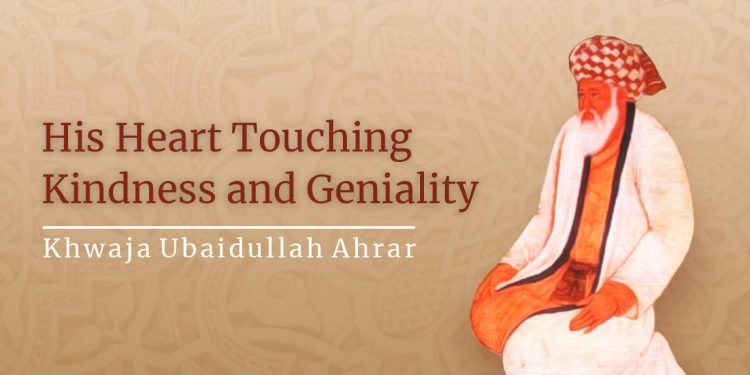Heart Touching Kindness and Geniality of Khwaja Ubaidullah Ahrar
Though it is not surprising for Sufi and religious leaders to have a kind and warm heart towards people; Kindness and Geniality of Khwaja Ubaidullah Ahrar had, however, was unprecedented. He had the heart to help beggars, invalids and unprivileged when he didn’t have any financial means to do so. He could give up his torn turban to feed a hungry man. Such was the generosity that this reverend Sufi leader had, without thinking about his own comfort he always gave priority to people’s needs. Even when he had a lot of property and wealth, he was of the view that his money was for philanthropy.
Khwaja Ahrar quoted in “Masters of Wisdom”, “There were three invalids in Maulana Qutb-ud-Din’s school when he was in Samarkand, Khwaja took the responsibility to take care of them. Due to their disease they would make their clothes and bedding mucky, Khwaja used to clean their clothes and sheets. Consistently serving them inflicted him with the effects of disease and he got seriously ill but even then he used to bring clean water to them.”
Another account of his courtesy and compassion is that he used to offer his services to the Muslims in public steam bath. He never made discrimination between people of age, color, caste or creed, that service too affected his health really badly.
Khwaja taught his followers the true essence of religion that is helping the people. He considered it greater than worship, remembrance, and vigil. Though for Sufi leaders what could be the best practice than spending hours in chanting God but Khwaja Ahrar gave more importance to serving mankind. For him winning the hearts was definitely more worthwhile than worship and its rituals. This was one of the reasons; cohorts of followers were swayed because of Khwaja’s attitude towards his fellow men.
Khwaja Ahrar was by definition a man of purity. He observed manners and politeness to set an example for his followers. The author of Rashahat quoted,
“During my service to Khwaja for eight months, I never saw him yawning, blowing his nose or spitting. He never sat crossing his legs. His associates, servants and followers have given accounts of how sophisticated he was in his demeanor.”
Khwaja Ahrar was very compassionate towards the affiliates and servants he had. Many times he would give them space to rest up without making them feel ashamed or bad about it. He would think about his companions’ comfort first during a journey. He could carry a burden or do other chores without feeling bad.
Khwaja Ahrar once said,
“To be a dervish is to bear everyone’s burden and not to impose one’s own burden on anyone else.”
The reverend Khwaja lived up to what he said. He remained a pillar of support for his followers instead of burdening them with anything. He empowered them, showed them the light in the bleakest of times and taught them resilience. He was and is indeed a contemporary leader that people look up to for spiritual guidance and grace.


















